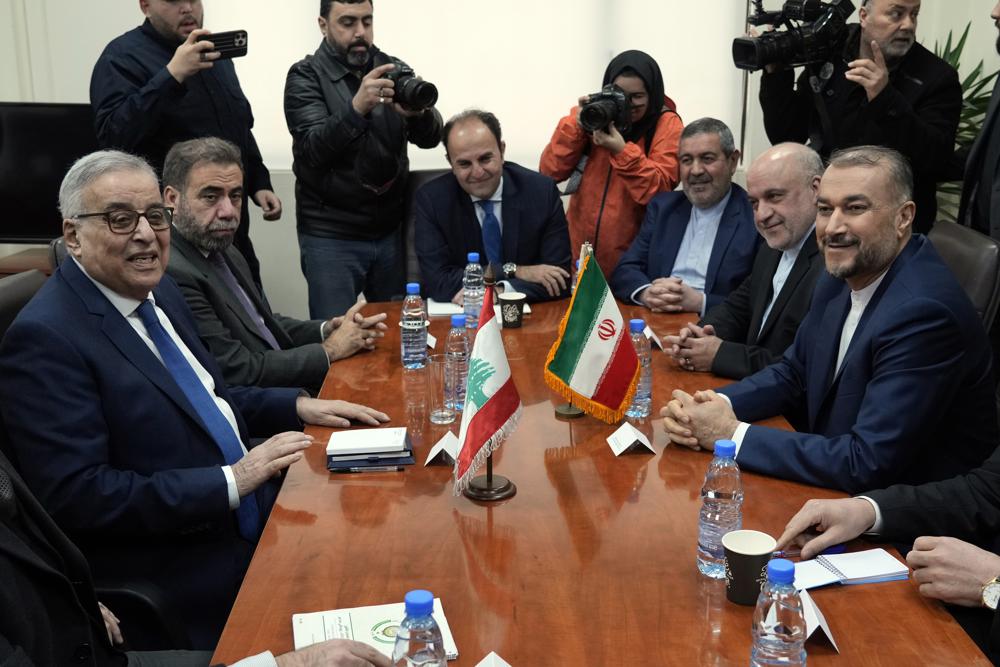

Talks between regional rivals Iran and Saudi Arabia are continuing and could eventually restore diplomatic relations that were severed years ago, Iran’s foreign minister said Friday.
Hossein Amirabdollahian told reporters in Beirut Friday that he met Saudi Foreign Minister Prince Faisal bin Farhan Al Saud during a conference in Jordan last month that was attended by Middle Eastern and European officials. The meeting between Amirabdollahian and Prince Faisal was the highest-level encounter between the two countries since they cut relations seven years ago.
Sunni powerhouse Saudi Arabia and Iran, which is majority Shiite, have been at odds since Iran’s 1979 Islamic Revolution, but relations worsened after the 2016 execution of Shiite cleric Nimr al-Nimr by Riyadh. The incident set off protests in both countries. In Tehran, demonstrators set fire to the Saudi Embassy. Diplomatic relations soured after that.
Direct talks were launched in April 2021, brokered by Iraq, in a bid to improve relations. The mere existence of a dialogue was seen as important, even if the only notable result so far has been Iran reopening the country’s representative office to the Organization of Islamic Cooperation in the Saudi city of Jeddah.
“There was an agreement in our points of view to continue with the Saudi-Iran dialogue in what would eventually normalize relations between the two countries,” Amirabdollahian said about his meeting with his Saudi counterpart in Jordan in December.
“We welcome the restoration of normal relations between the Islamic Republic of Iran and the Kingdom of Saudi Arabia,” Amirabdollahian said. The hope, he added, is that eventually “we reach (an agreement on) reopening diplomatic missions and embassies in Riyadh and Tehran.”
Amirabdollahian also praised contacts between Syrian and Turkish officials saying that such talks will have positive effects on the interests of those two countries.
The defense ministers of Turkey and Syria held talks in Moscow in late December, marking the first ministerial-level meeting between Damascus and Ankara since relations broke down with the start of the Syrian civil war more than 11 years ago.
Turkey and Syria have been on opposing sides of the Syrian conflict, with Turkey backing rebels trying to oust Syrian President Bashar Assad. Damascus, for its part, has denounced Turkey’s hold over stretches of territory in northern Syria which were seized in a series of military incursions since 2016 to drive away Kurdish militant groups.
In his first comments on the Turkish-Syrian dialogue, Assad said in a statement released by his office Friday following a meeting with Russian presidential envoy in Syria Alexander Lavrentyev, that the Russia-backed talks should aim to “end the occupation and the support of terrorism.”
Assad was referring to Turkey’s backing of insurgent groups since the conflict began in March 2011 and has killed hundreds of thousands of people.